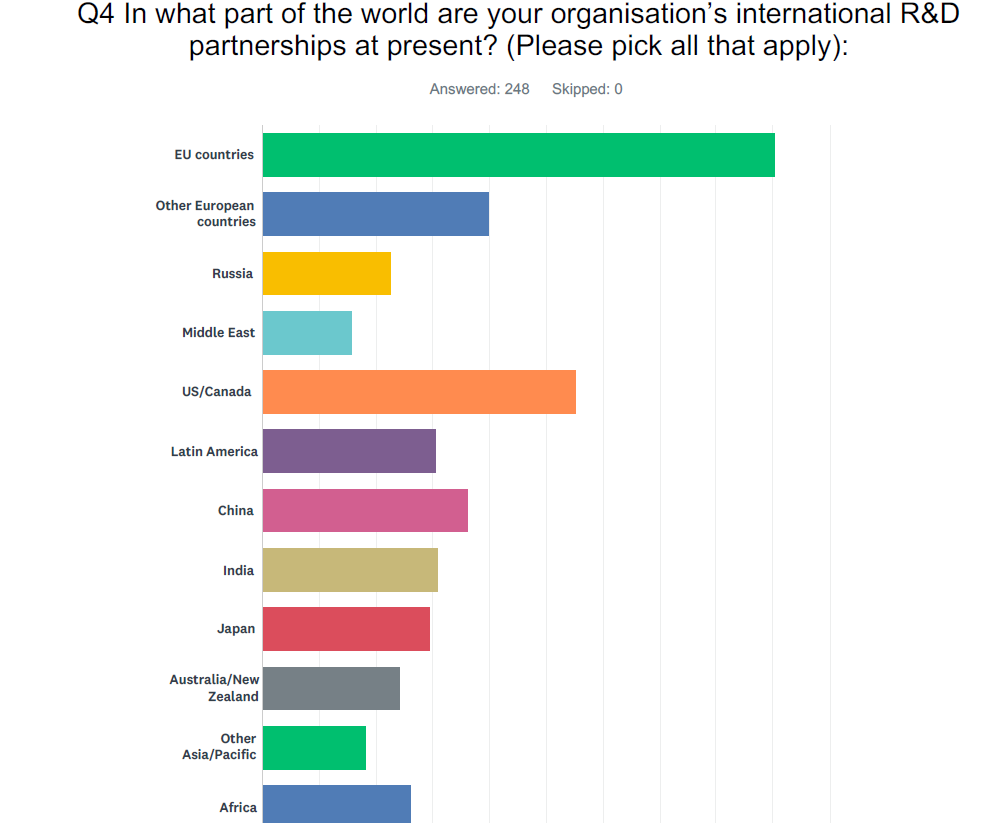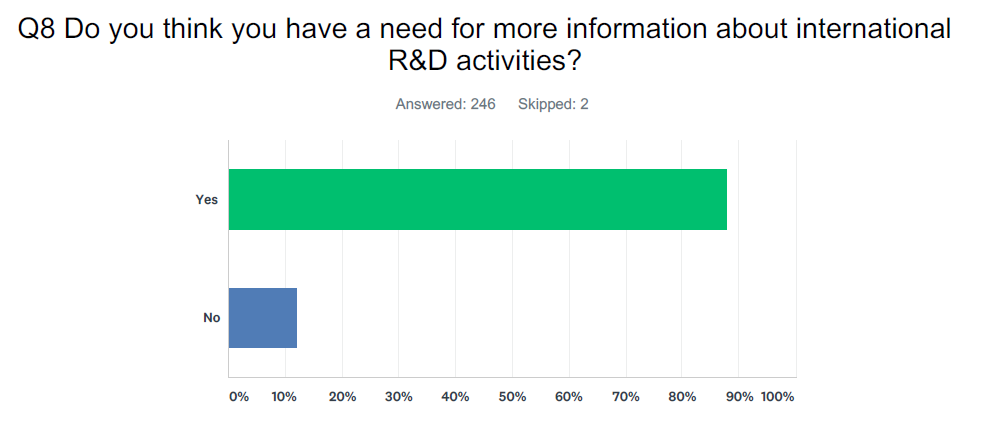New Science|Business poll reveals growing appetite for global research partnerships but finds persistent funding and legal barriers can stand in the way

While global R&D collaboration has become more important than ever, funding and legal barriers are holding it back, a new survey by Science|Business finds.
Science|Business surveyed 250 people in a small but global poll of universities, public agencies and research organisations, companies and non-governmental organisations, to gauge sentiment ahead of the EU’s next research programme, Horizon Europe, taking shape currently and due to start in 2021.
The results provide a barometer of how researchers are positioning themselves to address the challenges of the future.
Three-quarters of respondents feel global collaboration in research is vital, both for “the future of their organisation” and for “the future of the world”.

The results indicate that, while research collaboration has always been an essential motor of scientific discovery, it is becoming more prominent.
What’s more, there is an appreciable desire for research programmes that encourage and incentivise collaborative science.
For example, almost 70 per cent of respondents are attached to associations that help network and to make contacts for international R&D collaboration.
With whom are researchers collaborating? For 90per cent of respondents it’s researchers and companies in other EU countries.
The US and Canada are the next most important partners, followed by partners in Latin America, China, India, Japan and Australia and New Zealand and Africa.
The regions where respondents say they have the least collaboration are Russia, the Middle East and Asia Pacific.

Why collaborate? The most obvious benefit is “better R&D results”, respondents said.
It is well understood that collaborative research projects lead to publications that typically receive more citations. An analysis of over 10 million papers tracked by Web of Science found that between 2000 and 2015, the number of internationally co-authored papers tripled.
Challenges for effective collaboration
But if research collaboration is of growing importance for the vast majority of organisations, what’s preventing more of it?
It’s not a lack of will or access to scientific and technical expertise but, rather, a lack of funding, according to about half of those surveyed.
The second biggest barrier to effective collaboration is legal obstacles involving contract or grant terms, followed by a lack of information and contacts.
Uncertainty about the future is hitting one country above all others right now, of course. Brexit has weighed heavily on confidence in labs and universities in the UK, with the threat of a no-deal exit from the EU increasing over time.
Almost 90 per cent of respondents said they need more information on global science opportunities.

This could be in the form of government policy news that affects international R&D, multinational or university R&D strategies and deals, or tips and information on getting international R&D funding.
Respondents also want help and information to find international partners, career advice, news of R&D tenders or grants open to international participants, and information about key people involved in international R&D.
Where there is information available, respondents said it is mainly sourced from existing R&D partners, followed by suppliers or customers.
The next most reliable source of information is governments, followed by specialised news media, general news media and social media.





 A unique international forum for public research organisations and companies to connect their external engagement with strategic interests around their R&D system.
A unique international forum for public research organisations and companies to connect their external engagement with strategic interests around their R&D system.